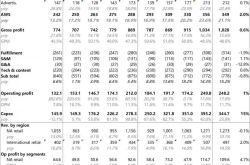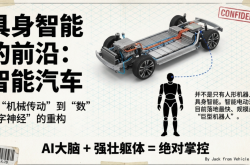Baidu Halts Losses in Time as Geyue Auto Suddenly Collapses
![]() 12/13 2024
12/13 2024
![]() 501
501
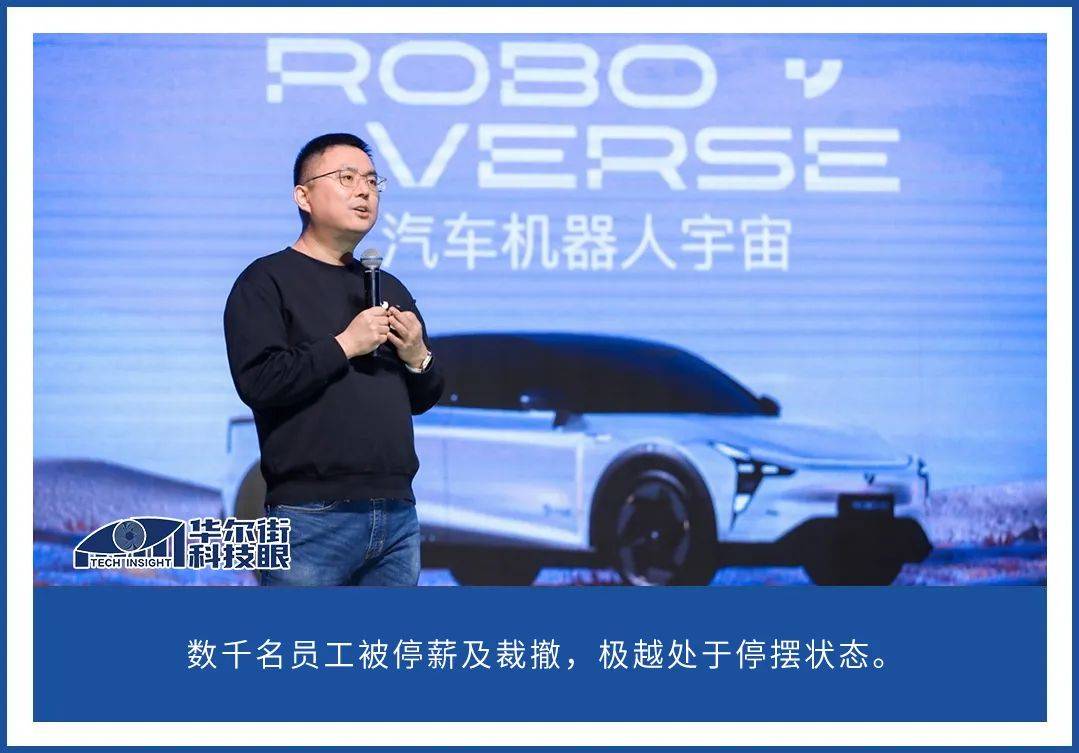
Written by/Leon
Edited by/Hou Yu
Another wave of new energy vehicle enterprises has fallen at the year's end.
First, the CEO of Nezha Auto resigned, and the company was on the brink of bankruptcy. Then, Geyue Auto suddenly collapsed, with thousands of employees having their salaries suspended and being laid off, leaving the company at a standstill.
On the morning of December 12, a video surfaced of Geyue CEO Xia Yiping being besieged by employees demanding their salaries. In the video, employees shouted at Geyue's management, "Use your own savings to pay our social security!" Xia Yiping attempted to reassure them, saying, "We are actively working on it."
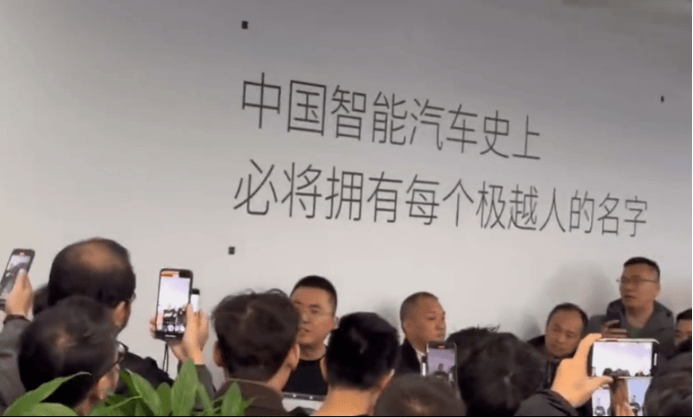
The Geyue incident originated from a salary demand on Weibo. On December 11, tech media TechPlanet tweeted at Geyue demanding payment, claiming that Geyue owed it 360,000 yuan for marketing services and had not paid despite multiple reminders, tagging Geyue's official Weibo account and its CEO Xia Yiping.
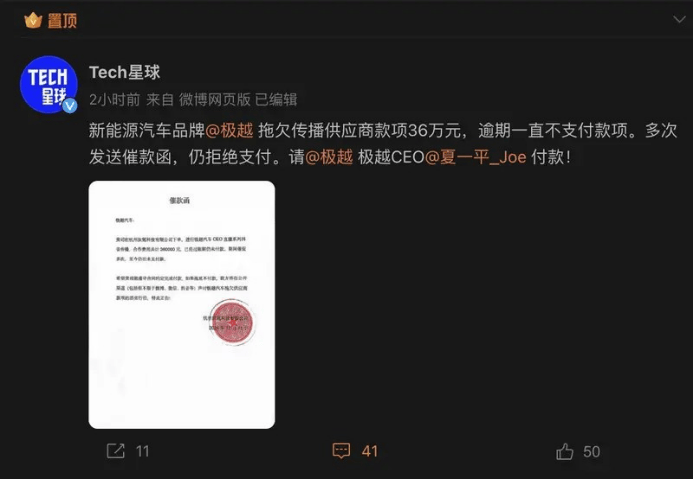
As the incident escalated, Geyue's official Weibo account issued a clarification, stating that the company had entered its Startup 2.0 phase and was actively reducing costs and enhancing efficiency while pushing forward with financing. It also assured that vehicle deliveries and after-sales services would proceed normally. For suppliers, Geyue was conducting financial adjustments and arranging payments in an orderly manner.
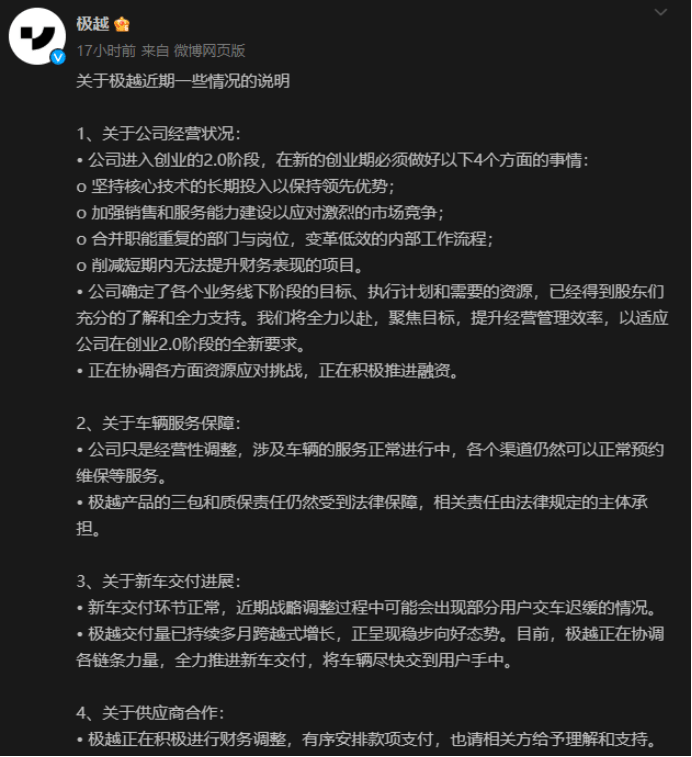
In the afternoon of December 11, Geyue Auto CEO Xia Yiping held an online internal meeting with all employees, stating that the company was facing operational difficulties and giving employees two options: First, voluntarily resign by December 16 with N+1 compensation, which was expected to be paid by February 15 but not guaranteed; second, take unpaid leave without social security and provident fund contributions. In fact, starting from November, Geyue had stopped paying social security contributions for employees due to a broken capital chain.
Meanwhile, a large number of suppliers, including China Mobile, were rushing to Geyue Auto's headquarters to demand payment. According to reports, China Mobile's Shanghai branch is pursuing about 2.05 million yuan in arrears for connected vehicle services from Geyue and has officially initiated legal proceedings.
From 'Jidu' to 'Geyue,' Xia Yiping Faces Questions
According to ECNS, Geyue currently has over 5,000 employees, including full-time and outsourced staff, with the entire R&D department facing layoffs and only 80 out of 300 after-sales staff retained. Based on these figures, it is estimated that at least 3,000+ Geyue employees will lose their jobs and may not receive satisfactory compensation packages for the time being.
In response, Xia Yiping told the media that he would not "run away" and would resolve employees' social security and medical insurance issues as soon as possible. He also opened the company's main group to allow employees to voice their concerns. However, employees did not seem satisfied, taking to social media to vent their frustrations and expose information, with some fascinating revelations about Xia Yiping personally.
An employee of Geyue posted on WeChat Moments that the CEO of 'Jidu' was shameless, abusing his position for personal gain, and lacking in moral integrity. Specific allegations included approving designated suppliers at prices ten times the market rate and engaging in immoral behavior during his marriage. The so-called 'Jidu' was a veiled reference to CEO Xia Yiping.
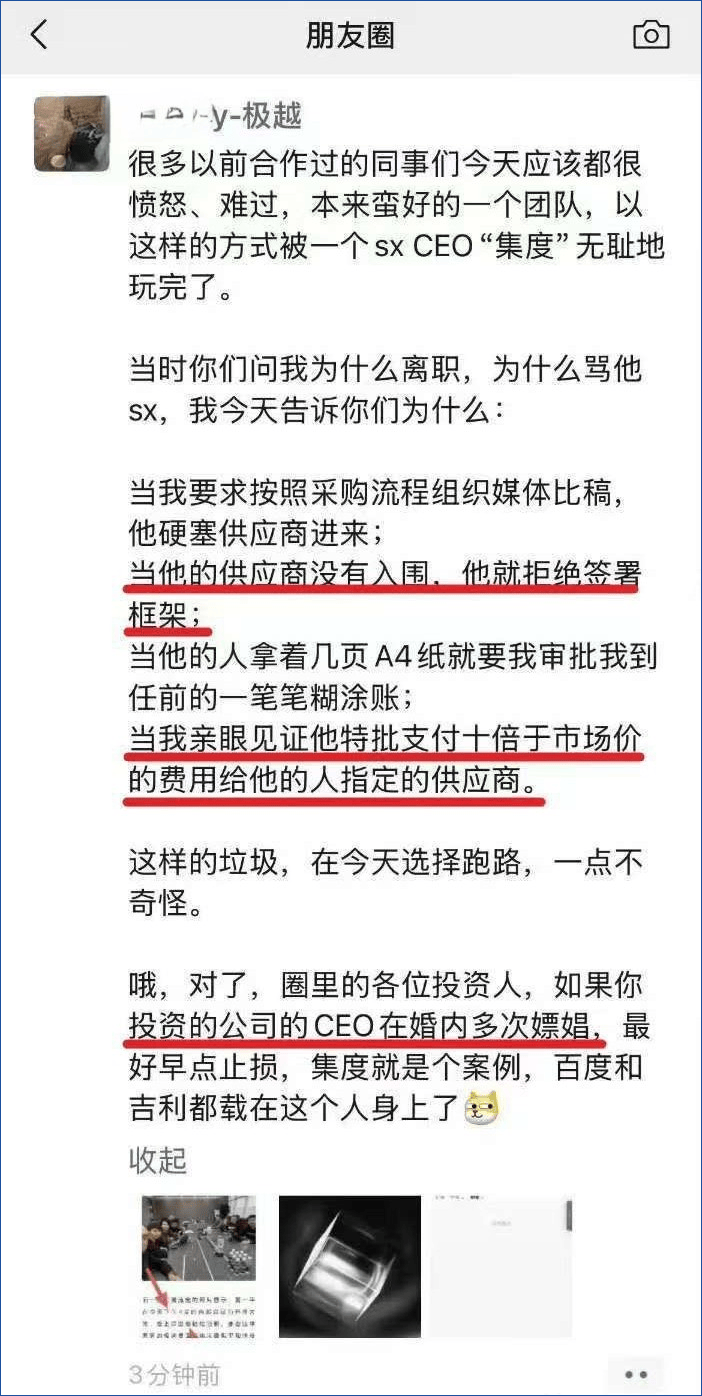
According to Qichacha, Xia Yiping serves as the legal representative, manager, and director of various branches of Jidu Auto (Hong Kong) Limited, but the 'Geyue' trademark belongs to Zhejiang Geely Holding Group Co., Ltd., necessitating a discussion of the complex relationship between 'Jidu' and 'Geyue'.
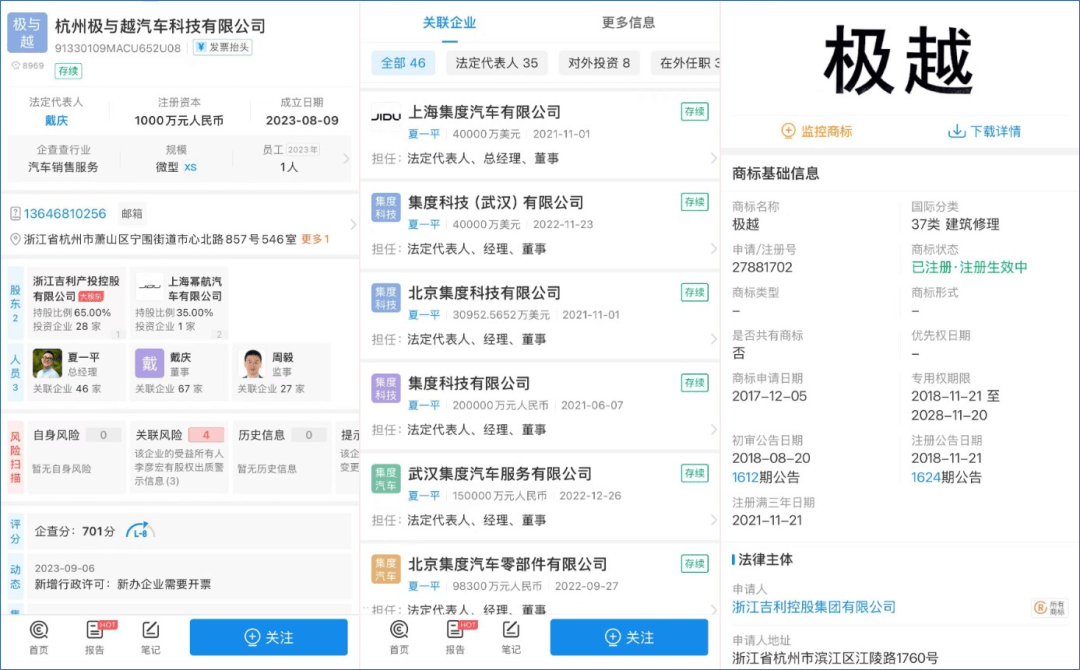
Xia Yiping is the co-founder and CTO of the former bike-sharing company Mobike. After Mobike was sold, Xia Yiping ventured into the new energy vehicle industry, finding Baidu and Geely as investors to jointly establish 'Jidu Auto' in 2021, with Baidu holding 55% and Geely holding 45% of the shares.
The following year, Geely withdrew from Jidu Auto's shareholder ranks and established Hangzhou Ji Yue Automobile Technology Co., Ltd. with Xia Yiping. Xia Yiping holds a 35% stake in the company through Jidu Auto, while Geely holds a 65% stake, making it the majority shareholder. In summary, Geyue is a new energy vehicle brand under Geely Holding, with participation from Baidu.
According to insiders, the sudden collapse of Geyue is attributed to insufficient shareholder support. Baidu chose to cut its losses promptly due to its pessimistic outlook on Geyue Auto's profitability. Meanwhile, the largest shareholder, Geely, primarily provides platforms and technology and charges manufacturing fees, but Geyue is already in arrears on these fees.
Currently, Geely Automobile has not made any statements regarding Geyue's operating conditions.
Chinese New Energy Vehicle Enterprises Face a New Round of Reshuffling
The collapse of Geyue Auto is not accidental. As we all know, the model for new energy vehicle startups typically involves "funding-manufacturing-store opening-sales-refinancing" until profitability, a process that is extremely costly.
To sustain this model, there must be a continuous influx of funds or consistently high sales to generate revenue. Unfortunately, Geyue lacks both.
Currently, Geyue has only launched two models, Geyue 01 and Geyue 07. The Geyue 01 model delivered 14,000 units in the first 11 months of 2024, averaging only 1,300 units per month. In November of this year, the Geyue 01 announced a price reduction of 30,000 yuan, but it did not trigger a sales surge, with only 774 units sold from December to date.
Meanwhile, Geyue has been continuously increasing its store count, with 140 stores in total. If CEO Xia Yiping's mysterious operations are true, then Geyue's financial situation is predictable.
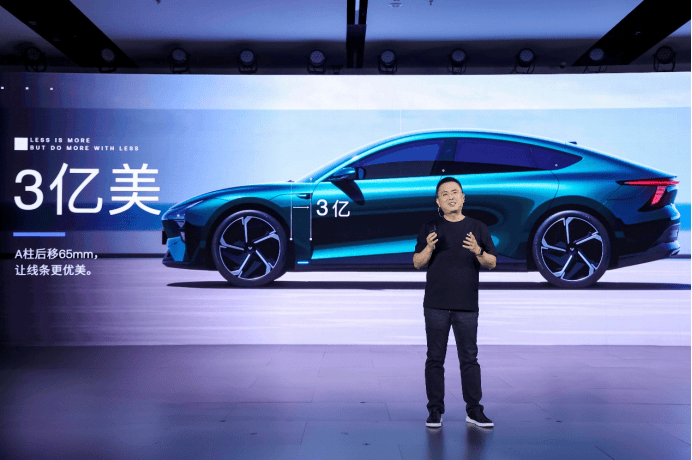
An even harsher reality is that, as of 2023, among global new energy vehicle enterprises, only Tesla, BYD, and Li Auto have achieved overall profitability, with Li Auto being the only one among China's new energy vehicle startups. (For details, see: What Li Bin of NIO Told Us at the End of 2023)
According to incomplete statistics, new energy vehicle brands that have closed down or ceased production include Evergrande's Hengchi Auto, Freelander, HiPhi, WM Motor, Byton, Qiantu Motors, AITO, Youxia, Hopon, and Enovate, among others. (For details, see: Is Freelander 'Disbanding'? Li Yinan Burns Through $500 Million?)
Additionally, Nezha Auto, invested in by 360 Security, and Jishiqi Auto, part of Xiaomi's ecosystem, are both representatives of dismal sales, with Jishiqi selling only 500-600 units per month, clearly approaching the red line. NIO, one of the leading new energy vehicle startups, has incurred a total loss of approximately 96.013 billion yuan in its ten years of vehicle manufacturing and still does not foresee profitability.
So, will Geely rescue Geyue? Currently, the prospects seem bleak. Geely Holding already owns two new energy vehicle brands, Zeekr and Lynk & Co. To enhance competitiveness, Geely announced the merger of the two brands in November, with Zeekr taking control of Lynk & Co to jointly create high-end new energy vehicles.
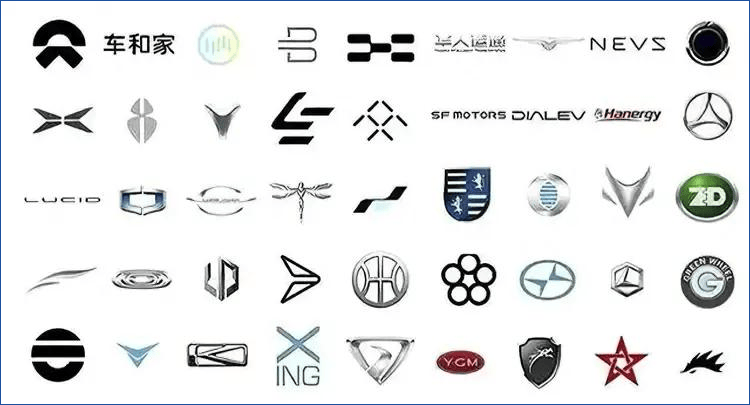
The latest data shows that from January to November this year, China's new energy vehicle production and sales reached 11.345 million and 11.262 million units, respectively, up 34.6% and 35.6% year-on-year. New energy vehicle sales accounted for 40.3% of total vehicle sales.
Behind this growth lies a stock of 20.41 million new energy vehicles. Excluding exports, the domestic market alone hosts dozens of new energy vehicle brands, making the race extremely competitive. As He Xiaopeng said earlier this year, China's new energy vehicle industry has entered an elimination round, and Geyue is neither the first nor the last.

